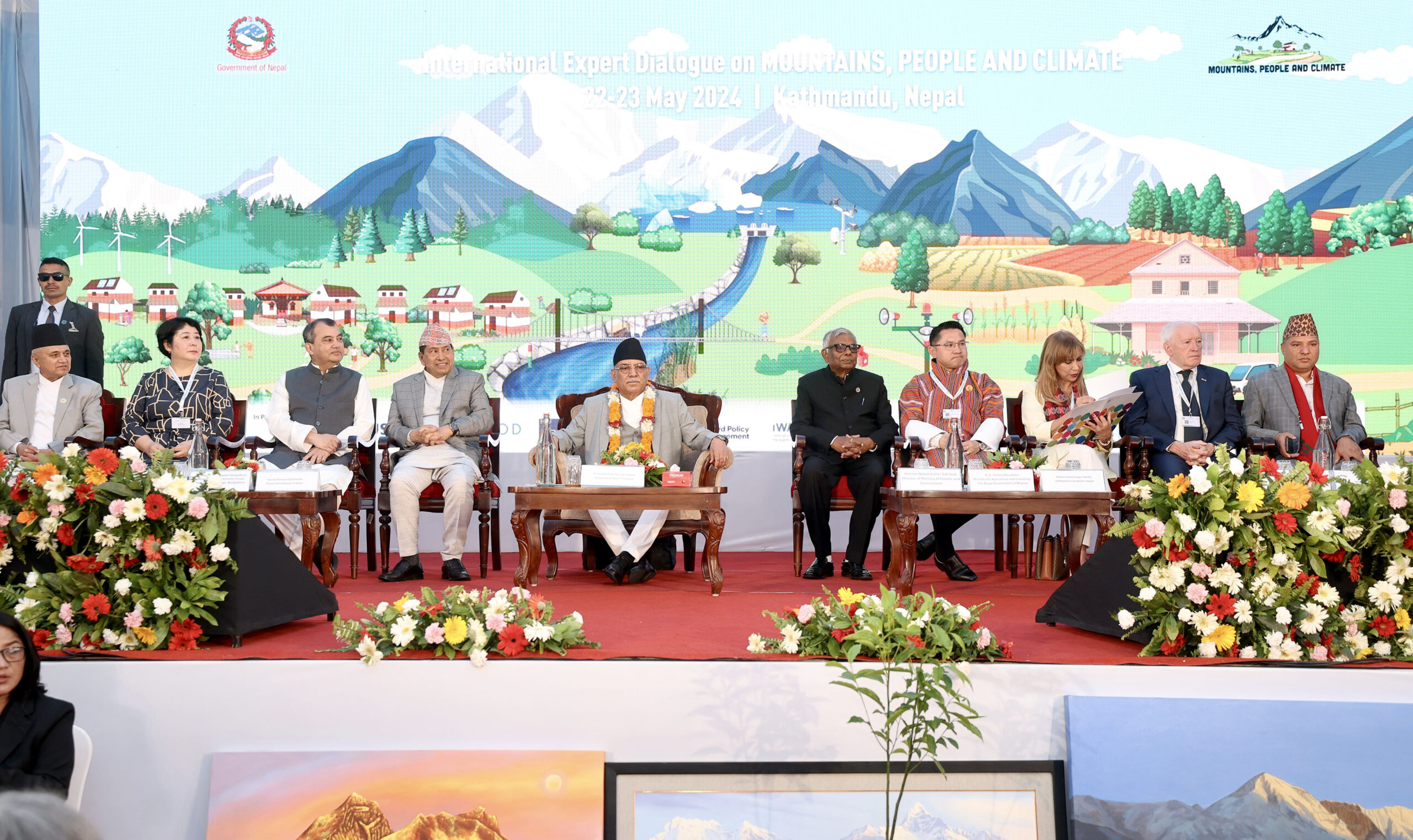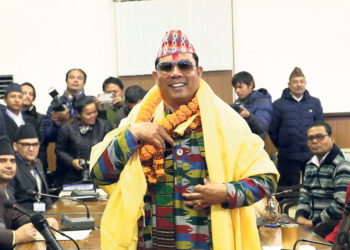KATHMANDU: Stakeholders have voiced significant concerns over the growing adverse effects of climate change on the Himalayas, urging immediate steps to mitigate the impact.
These calls were made during the ‘International Dialogue on Mountains, People, and Climate,’ which began today in Kathmandu, initiated by Nepal.
In the opening session, Chief Secretary of the Government of Nepal, Dr. Baikuntha Aryal, highlighted the rapid melting of snow and glaciers in the mountains due to climate change.
He noted that the transformation of snow-capped mountains into bare rocks necessitates heightened awareness and action.
“Last year’s international conference on climate change, COP-28, also discussed the impact on the Himalayan region. This dialogue is a continuation of those efforts,” he said.
Chief Secretary Aryal further emphasized the importance of protecting the sources of drinking water, which serve 80 percent of the mountain population.
Dr. Govinda Prasad Sharma, Secretary of the Ministry of Forests and Environment, stated that climate change poses significant risks to the mountainous regions.
He highlighted the increasing problems of forest fires, glacial lake outburst floods, and rising sea levels due to temperature rise.
“It is crucial to act promptly to save the mountainous regions from the crisis of climate change,” he added.
Karen Welch, Director of USAID, mentioned their ongoing partnership in biodiversity conservation and environmental efforts in Nepal, expressing commitment to continue this collaboration in the future.
Rosalaura Romeo of the Mountain Partnership Secretariat of the Food and Agriculture Organization (FAO) emphasized the importance of experience exchange programs in addressing the challenges faced by mountain countries.
She noted the availability of scientific data on the impact of climate change in the Himalayan region.
Dinara Kemelova, the special representative of Kyrgyzstan, highlighted that mountains are home to 30 percent of the world’s population and called for collective efforts in their protection. She stressed the indispensable role of mountains in providing clean drinking water and hydroelectric power.
Hanna Singer Hamdy, the Resident Coordinator of the United Nations in Nepal, underscored the adverse impact of climate change on the Himalayas and their inhabitants, advocating for cooperative measures to protect the region.
Harry Vireau, Chair of the UN Subsidiary Body for Scientific and Technological Advice (SBSTA), pointed out the increasing occurrence of disasters such as floods and landslides due to climate change. He stressed the need for collective solutions to mitigate these effects.









Comment